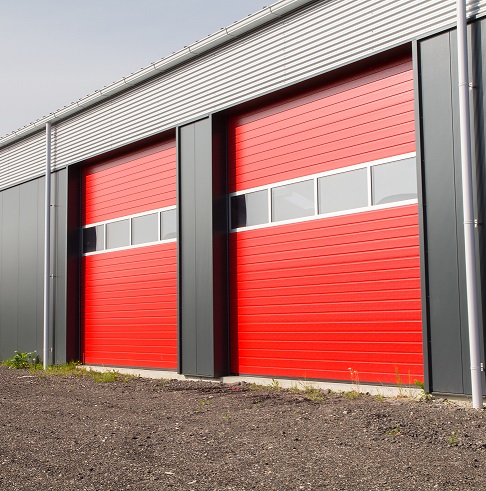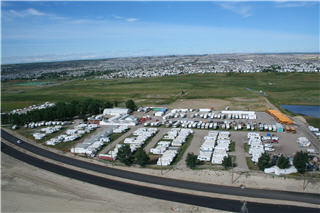Moving or running a small business often comes with a challenge many owners underestimate: space. We need a place to keep tools, supplies, documents, or seasonal stock without cluttering the office or shop. In NE Calgary, storage options are plentiful, but finding affordable choices that truly fit business needs takes some thought. Here we’ll explore practical approaches and considerations to make sure we get the right balance of cost, convenience, and security.
Understanding Business Storage Needs
Every business has unique storage needs. Retail shops may require room for seasonal products, while contractors might need secure places for tools. Restaurants can benefit from off-site storage for rarely used equipment or bulk supplies. Therefore, the first step is identifying what items need to be stored and how often they will be accessed.
We should also think about the size of the storage unit. Choosing a unit that is too large means paying for unused space, but going too small creates frustration when items no longer fit. A clear inventory list helps in selecting the right size from the start.
Location Matters for Efficiency
Accessibility is one of the most important factors when choosing storage. For a business in NE Calgary, it makes sense to select a location close to main roads and commercial areas. Time spent driving across town adds up, especially when multiple visits per week are required.
In addition, businesses that rely on quick turnaround—like delivery services or contractors—benefit from choosing a facility with easy vehicle access. Wide driveways, loading docks, and flexible hours make daily operations smoother. This means our team saves time and reduces stress during busy workdays.
Balancing Cost and Value
Price is a deciding factor for small businesses, but affordability does not mean only looking for the cheapest option. We need to weigh the value provided for the rate charged. For example, units that include climate control may cost more, but they protect sensitive items like electronics, paperwork, or food supplies. That protection can prevent losses that are more expensive in the long run.
Businesses can review available storage rates to compare costs and match them with their priorities. By aligning budget with features, we avoid overspending while still securing safe and functional space.
Security for Peace of Mind
When storing business property, security cannot be overlooked. Theft or damage can disrupt daily work and even harm customer trust. A reliable storage site should include multiple safety measures, such as gated entry, cameras, and secure locks. For businesses storing high-value items like tools, supplies, or sensitive files, these protections are non-negotiable.
Moreover, insurance should be considered. Some storage facilities may require it, but even if they don’t, it is a smart way to protect against unforeseen events. We should think of storage as an extension of our workplace, and keeping it secure is just as important.
Flexible Options for Growing Businesses
Small businesses in Calgary often face changes—seasonal demand, growth, or unexpected slowdowns. Storage solutions that allow for flexibility make it easier to adjust. Short-term rental options or the ability to upgrade to a larger unit without penalty are especially helpful.
This flexibility means we can start with a modest unit and scale up only if business growth demands it. On the other hand, if operations slow down, we can downsize without wasting money. Choosing facilities that offer such adaptability ensures we are not locked into a plan that no longer suits our needs.
Climate Considerations in Calgary
Calgary’s weather can be unpredictable, and harsh winters affect stored goods. Extreme cold may damage electronics, liquids, and some materials. Climate-controlled units provide stable conditions that help avoid these issues. While not all items require it, businesses handling sensitive stock should take this option seriously.
For example, a florist storing supplies or a bakery keeping packaging materials may benefit from stable temperatures. Similarly, companies with documents or records can avoid moisture-related damage with climate control. Knowing how weather impacts business property helps us make informed choices.
Space Beyond Storage
Some small businesses use storage facilities for more than just storing items. Units can act as mini warehouses for inventory or serve as staging areas for deliveries. Contractors sometimes use them as a base to pick up tools in the morning and return them at night. This means a well-chosen facility becomes a real extension of the workplace.
It is worth noting that not all storage sites allow these uses, so we need to check rules before committing. When allowed, though, it can make daily operations more streamlined and efficient.
Budget Planning Tips
We can save money on storage by thinking ahead. Paying for a longer rental term sometimes reduces the monthly cost. Choosing the correct unit size from the start prevents paying extra for unused space.
Additionally, organizing items well helps maximize every square foot. Shelving, clear bins, and labels reduce wasted space and improve access. With careful planning, even a smaller unit can hold more than expected. This results in better efficiency and lower costs.
Long-Term Reliability
For businesses that plan to use storage for years rather than months, reliability of the facility matters. We should consider not just price but also the reputation of the site. Asking about maintenance schedules, pest control, and customer support reveals how dependable the service will be.
Choosing reliable self storage solutions in Calgary ensures we are not dealing with unexpected issues down the road. Long-term dependability allows us to focus on business growth rather than worrying about storage problems.
Making Storage Part of Operations
Integrating storage into the daily rhythm of a business requires organization. We should assign someone in the team responsibility for managing the unit. A regular schedule for checking items, rotating stock, or updating inventory records keeps things running smoothly.
When storage is treated as an organized extension of operations, it prevents wasted trips, lost items, or confusion. This approach saves time and reduces mistakes, which is especially important for small businesses with limited staff.
Call to Action
If you are considering affordable options for your business, it is worth speaking directly with a local team. They can explain unit sizes, pricing, and any flexible terms that fit your needs. To find out what solutions are available or to set up a unit, contact us today.
FAQ
What size unit is best for small businesses?
It depends on what you plan to store. A 5×10 unit is often enough for boxes, tools, or small stock. Larger units like 10×20 may be needed for equipment or bulk items.
Are climate-controlled units worth it?
Yes, if you store sensitive items like electronics, documents, or food-related materials. Stable temperature and humidity prevent damage.
Can I use a unit as a small warehouse?
Many businesses do, but you should confirm with the facility about rules for using units this way. Some allow it while others have restrictions.
How can I keep costs low?
Plan carefully before renting. Choose the right size, organize items efficiently, and ask about long-term discounts.
Is storage safe for expensive tools?
Yes, if the facility has strong security features like cameras and gated access. Adding insurance provides extra protection.




